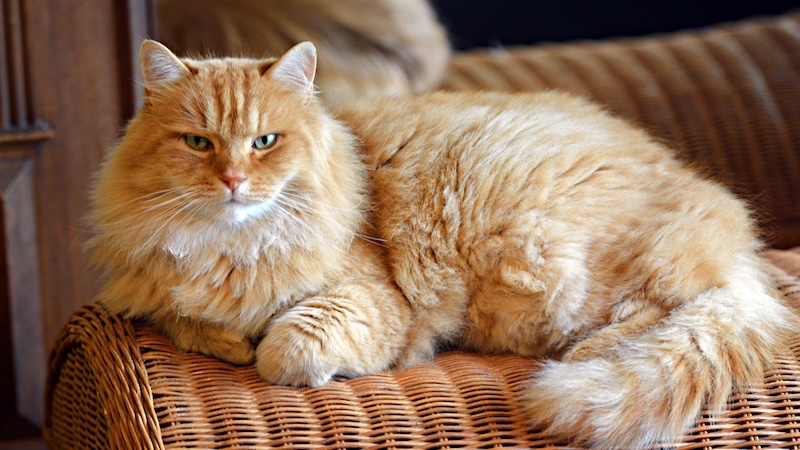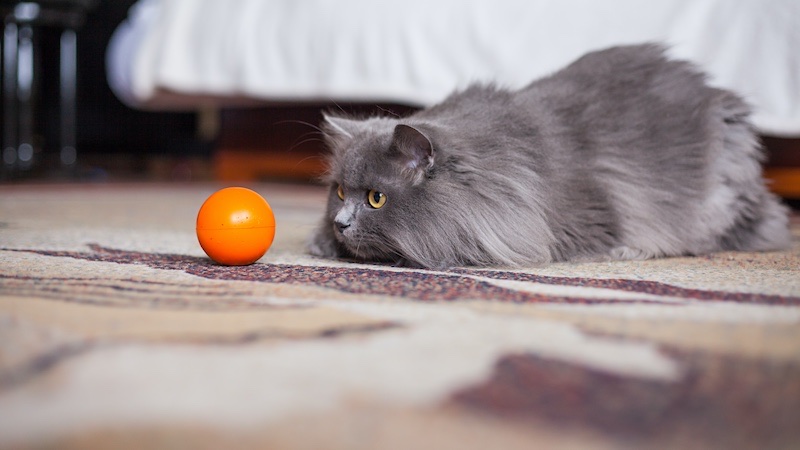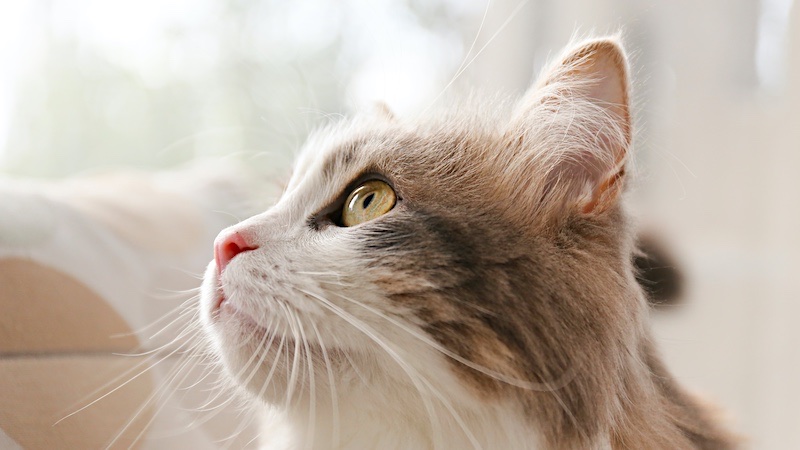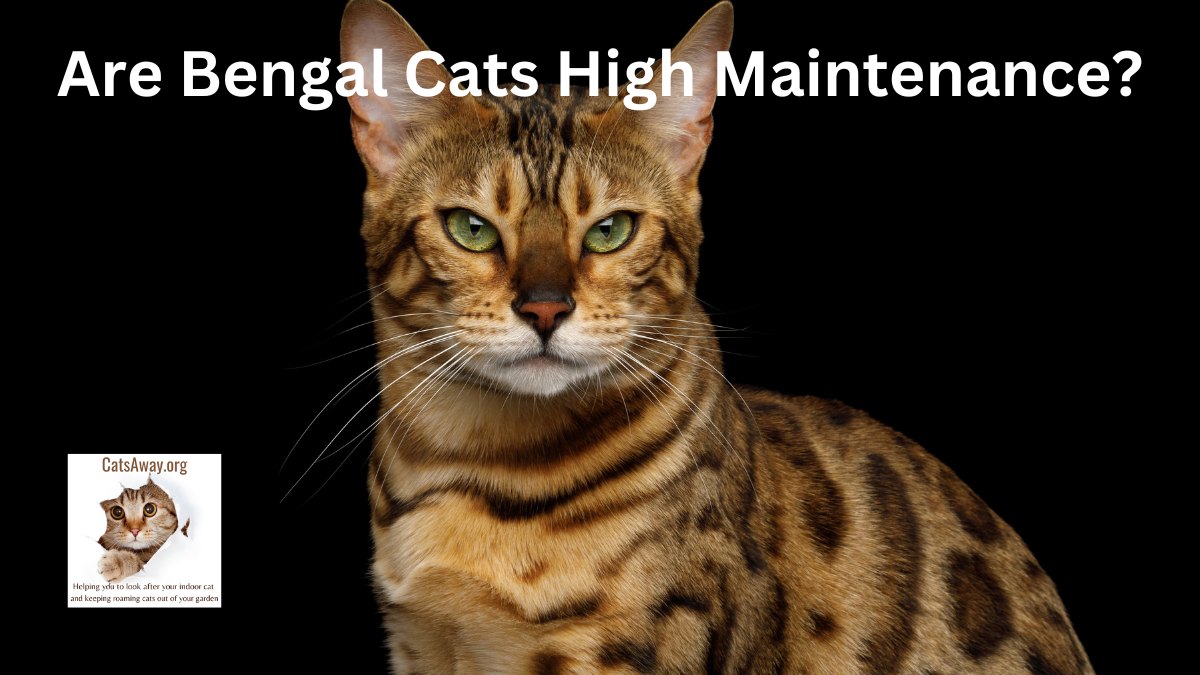Siberian cats, known for their stunning semi-long-haired triple coats and charming personalities, have become increasingly popular as pets in recent years. But one question that potential owners might have is how long these beautiful felines generally live.
Understanding the lifespan of Siberian cats is crucial for individuals considering adding one of these majestic creatures to their family.
How long do Siberian cats live? The Siberian cat is a relatively healthy and robust breed and their lifespan ranges from 10 to 18 years. This longevity is due, in part, to their lineage that has withstood the test of time.
Siberian cats have lived throughout Russia for at least a millennium, adapting to various roles and environments, including monasteries, forests, farms, and households.
Of course, several factors can affect the lifespan of an individual Siberian cat, such as genetics, general health conditions, and living environment.
To ensure these felines lead long lives, it’s essential to provide them with proper nutrition, exercise, and medical care. This way, Siberian cat owners can enjoy the affection and companionship of these sturdy, yet lovable creatures for many years to come.
Siberian Cat Origins

History
Siberian cats have a rich and fascinating history, existing in Russia for possibly up to 1,000 years. Their presence can be traced back in Russian fairy tales and children’s books. A more concrete reference to Siberian cats can be found in Harrison Weir’s book, “Our Cats and All About Them,” published in 1889.
The Siberian cat breed began to gain formal recognition in Russia around the 1970s and 1980s with the establishment of breeding records and the creation of a breed standard by Kotofei Cat Club in Leningrad.
Physical Characteristics
Siberian cats are medium to large long-haired cats, originating from the dense forests of Siberia. They are known for their robust build and friendly, playful temperament. Measuring 15-18 inches in body length and standing 9-11 inches in height, these felines have a weight range of 17-26 pounds.
Key features of the Siberian cat include:
Energetic and affectionate nature
Originating from Russia
Also known as Siberian Forest Cat, Moscow Semi-longhair, and Neva Masquerade
Due to their fairly healthy and sturdy constitution, Siberian cats are able to thrive both in the wild and as domesticated pets.
Average Lifespan of Siberian Cats

Factors Affecting Longevity
The average Siberian cat lifespan ranges between 10 to 18 years. However, a Siberian cat’s lifespan depends on various factors, which include:
Genetics: Cats that come from a healthy lineage are more likely to have a longer lifespan.
Environmental factors: Indoor cats will always outlive outdoor cats because indoor cats are less exposed to potential dangers like traffic accidents, predators, and diseases.
Quality of care: Proper veterinary care, a balanced diet, and regular grooming can positively impact a Siberian cat’s lifespan.
Health: Cats with chronic illnesses or disabilities will have a shorter lifespan compared to healthy ones.
Obesity: Keeping a Siberian cat within its correct weight will help prevent issues that will shorten its life.
Comparing Lifespans to Other Cat Breeds
Siberian cats have a comparable lifespan to other medium-sized, semi-long-haired cat breeds such as the Maine Coon (12-15 years) and the Norwegian Forest Cat (12-16 years).
The above is based on the cat being an indoor only pet. The life expectancy for indoor cats is generally 3 to 5 times longer than an outdoor cat which has a life expectancy of 2 to 5 years.
In conclusion, the Siberian cat’s longevity depends on various factors, some of which can be controlled by the cat owner to ensure a longer, healthier life.
Comparing the Siberian cat to other breeds, its lifespan is on par with other semi-long-haired cats and domestic mixes when raised indoors and given proper care.
Ensuring a Healthy Life for Your Siberian Cat
The Siberian cat is known for its longevity. To help your Siberian cat live a long life, it is essential to pay attention to proper nutrition, regular veterinary care, and environmental enrichment.
Proper Nutrition
Feeding your Siberian cat a well-balanced and high-quality diet is fundamental in ensuring its health. This means cat food that meets the nutritional requirements for your cats age, activity level, and overall health. The best diet will offer a mix of animal protein, carbohydrates, and essential nutrients to help maintain an ideal body weight, support their immune system, and promote a shiny coat.
Choose a diet specifically formulated for indoor cats which is a high-quality, protein rich food.
Monitor portion sizes and adjust according to your cat’s age, activity level, and weight.
Provide fresh water at all times to keep your cat well-hydrated.
 Purina ONE Natural Low Fat High Protein Cat Food Plus Indoor Advantage with Real Salmon
Purina ONE Natural Low Fat High Protein Cat Food Plus Indoor Advantage with Real Salmon
16lb bag
This high-protein nutritional weight control indoor cat food has 10 percent less fat than Purina ONE tender selects blend. Made with Salmon it helps your indoor cat maintain a healthy weight
Regular Veterinary Care
Routine check-ups are crucial for detecting and managing any health issues your Siberian cat may face. Schedule annual visits with your veterinarian for vaccinations, dental examinations, and overall health assessments.
Keep track of your cat’s vaccinations and boosters, such as rabies, feline leukemia, and FVRCP (feline viral rhinotracheitis, calicivirus, and panleukopenia).
Schedule semi-annual dental cleanings to prevent periodontal disease.
Regularly monitor your Siberian cat for signs of illness, such as changes in weight, appetite, or behavior.
Environmental Enrichment
Keeping your Siberian cat mentally and physically stimulated can contribute to its overall health and longevity. Offer various engaging activities, toys, and vertical space to promote their natural instincts.
Install scratchers and climbing structures to allow your cat to climb and maintain healthy claws.
Provide interactive toys and puzzles to keep their mind sharp and focused.
Provide a cat exercise wheel to prevent weight gain.
Schedule dedicated playtime to bond with your cat and promote physical exercise.
Common Health Issues With The Siberian Cat Breed
Genetic Diseases
Siberian cats are generally healthy cats with a long lifespan of 10-18 years. However, like any other breed, they may be prone to certain genetic diseases. For example, hypertrophic cardiomyopathy (HCM), a heart condition affecting the thickening of the heart muscles, is one of the few genetic disorders seen in Siberians.
Another genetic disease that may affect Siberian cats is polycystic kidney disease (PKD). This disorder causes cysts to develop in the kidneys, leading to kidney dysfunction. Responsible breeders should screen their breeding cats for these genetic issues to minimize their occurrence.
Preventable Illnesses
Siberian cats, like any other feline, may contract preventable illnesses if they do not receive proper vaccinations. Some common preventable diseases include:
Feline leukemia virus (FeLV): This viral infection can be transmitted through saliva, blood, or other bodily fluids. Vaccinating your Siberian cat is essential to protect them from FeLV.
Feline immunodeficiency virus (FIV): Similar to FeLV, this virus weakens the immune system and can be prevented through vaccination.
Upper respiratory infections (URIs): Keeping your cat’s living environment clean and stress-free can help prevent the development of URIs.
Early detection of potential problems is essential for your Siberian cat’s wellbeing. Regular veterinary checkups, a balanced diet, and appropriate vaccinations will help your feline friend lead an active and happy life.
Summing Up

It is important to note that maintaining the correct weight through a well-balanced diet and regular exercise can significantly impact a Siberian cat’s lifespan. Obesity can lead to a variety of problems, which can shorten their life expectancy.
Regular veterinary check-ups and preventative care are also essential in ensuring a long, happy life for these beautiful cats. By addressing potential health problems early on, owners can effectively manage any issues and keep their feline companions in top condition.
In conclusion, Siberian cats have a relatively long lifespan compared to other breeds, but owners should be mindful of their pets’ overall health and lifestyle to ensure they live their lives to the fullest.
Providing a loving and nurturing environment, proper nutrition, and timely medical care are crucial factors that contribute to the longevity of these charming felines.
Due to their temperament and being hypoallergenic Siberian cats are becoming a popular choice for those looking for an indoor pet. As such, demand is driving up the cost of a Siberian cat. Always purchase from a reputable breeder and TICA certified to ensure your new kitten will be healthy.
Frequently Asked Questions
Common health issues?
Although Siberian cats are generally healthy, they can be susceptible to certain health issues. Some of these include hypertrophic cardiomyopathy, hereditary and acquired heart diseases, and, occasionally, allergies. Regular check-ups with a veterinarian can help monitor and address these concerns.
Longest living cat breed?
The longest living cat breed is generally considered to be the Siamese cat. They have an average lifespan of 15 to 20 years, with some cats living well into their 20s. Other cat breeds with long lifespans include the Maine Coon, Ragdoll, and Burmese.
Need a companion cat?
Siberian cats are known for their energetic, friendly, and affectionate personalities. They tend to get along well with other animals and kids, making them a suitable choice if you want a companion cat for your household.
Siamese vs Siberian lifespan?
The Siamese cat typically has a slightly longer average lifespan compared to the Siberian cat. Siamese cats usually live between 15 to 20 years, while Siberian cats have an average lifespan of 10 to 18 years. However, both breeds can live up to 20 years or more with proper care and attention.
Ragdoll vs Siberian lifespan?
Both Ragdoll and Siberian cats have similar lifespans. Ragdoll cats tend to live between 12 to 15 years, and Siberian cats have a lifespan ranging from 10 to 18 years. The overall health and lifespan of each cat will depend on factors such as diet, exercise, and veterinary care.






